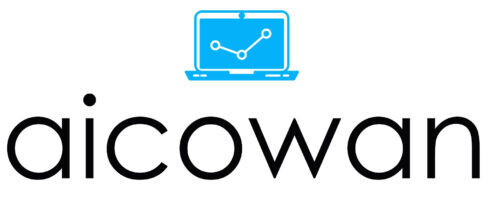Introduction:
In the rapidly evolving world of data, organisations are increasingly relying on skilled professionals to architect, manage, and optimize their data ecosystems. As a result, the role of a Data Architect has become pivotal in ensuring that data is not just collected but leveraged effectively to drive business decisions. If you’re aspiring to become a Data Architect and want to align your skill set with industry demands, mastering Microsoft skills is crucial. In this blog post, we’ll explore the key Microsoft skills needed to thrive in the role of a Data Architect.
SQL Server Mastery:
At the core of Microsoft’s data ecosystem lies SQL Server, a relational database management system widely used for storing and retrieving data. A Data Architect must have a deep understanding of SQL Server, including database design, query optimization, and data modelling. Proficiency in Transact-SQL (T-SQL) is essential, as it enables architects to manipulate and manage data effectively within SQL Server databases.
Azure Data Services:
With the growing popularity of cloud computing, Microsoft Azure has emerged as a dominant player in the cloud services arena. Data Architects need to be well-versed in Azure data services, such as Azure SQL Database, Azure Data Lake Storage, and Azure Synapse Analytics (formerly SQL Data Warehouse). These services enable architects to design and implement scalable, secure, and performant data solutions in the cloud.
Power BI Expertise:
Data visualization is a critical aspect of data architecture, and Microsoft Power BI is a powerful tool for creating interactive and insightful reports and dashboards. A Data Architect should be proficient in Power BI to transform raw data into meaningful visualisations that aid decision-making processes. Knowledge of Power Query and DAX (Data Analysis Expressions) is particularly beneficial in crafting sophisticated data models within Power BI.
Integration Services (SSIS) Skills:
Microsoft SQL Server Integration Services (SSIS) plays a vital role in ETL (Extract, Transform, Load) processes. Data Architects need to be skilled in SSIS to design and implement data workflows, extract data from various sources, transform it as needed, and load it into destination systems. Understanding the nuances of SSIS enables architects to build robust data integration solutions.
Mastering Data Warehousing:
Data Architects often work with large datasets and complex structures, making data warehousing knowledge indispensable. Microsoft offers tools like Azure Synapse Analytics and SQL Server Analysis Services (SSAS) for building and managing data warehouses. A Data Architect should be adept at designing efficient data warehouse schemas and optimizing them for performance.
Security and Compliance:
Data security and compliance are paramount in today’s data landscape. A Data Architect must understand Microsoft’s security features, such as Azure Active Directory integration, encryption, and access controls. Compliance with regulations like GDPR and HIPAA requires a thorough understanding of Microsoft’s tools and services for data governance.
Key Microsoft Skills:
- SQL Server Mastery:
- Proficiency in database design, query optimization, and Transact-SQL (T-SQL).
- Azure Data Services:
- Expertise in Azure SQL Database, Azure Data Lake Storage, and Azure Synapse Analytics.
- Power BI Expertise:
- Skill in creating meaningful visualizations using Power BI, along with Power Query and DAX knowledge.
- Integration Services (SSIS) Skills:
- Ability to design and implement data workflows using SQL Server Integration Services.
- Mastering Data Warehousing:
- Knowledge of efficient data warehouse schema design and optimization using tools like Azure Synapse Analytics and SQL Server Analysis Services (SSAS).
- Security and Compliance:
- Understanding Microsoft’s security features for data governance, including Azure Active Directory integration, encryption, and access controls.
Best Qualifications:
- Bachelor’s or Master’s Degree in Computer Science or a Related Field:
- A solid educational foundation in computer science or a related field provides a deep understanding of fundamental principles, algorithms, and data structures.
- Certifications from Microsoft:
- Microsoft Certified: Azure Data Engineer Associate: Validates expertise in implementing and managing data storage, processing, and security in Microsoft Azure.
- Microsoft Certified: Data Analyst Associate: Demonstrates skills in designing and building scalable data models, cleaning and transforming data, and enabling advanced analytics capabilities.
- Certifications in Database Management:
- Microsoft Certified: Azure Database Administrator Associate: Focuses on skills related to managing and optimizing relational databases in Azure.
- Microsoft Certified: SQL Server Database Administrator Associate: Demonstrates proficiency in administering and maintaining SQL Server databases.
- Certifications in Business Intelligence:
- Microsoft Certified: Power BI Certified Data Analyst Associate: Validates skills in using Power BI to visualize and analyze data.
- Project Management Certification:
- Project Management Professional (PMP): While not specific to Microsoft, a PMP certification can enhance your project management skills, a crucial aspect of overseeing complex data architecture projects.
- Specialized Training Programs:
- Participate in specialized training programs or workshops offered by Microsoft or reputable institutions to stay updated on the latest advancements in data architecture.
Conclusion:
Becoming a proficient Data Architect in the Microsoft ecosystem involves a multifaceted approach—mastering key skills and obtaining relevant qualifications. A combination of hands-on experience, continuous learning, and recognized certifications will ensure that you are well-equipped to navigate the complexities of modern data architecture, making you a sought-after professional in the ever-evolving field of data science.

